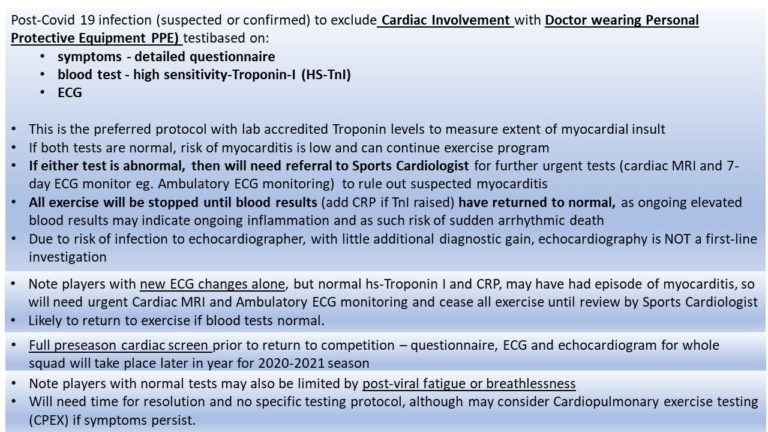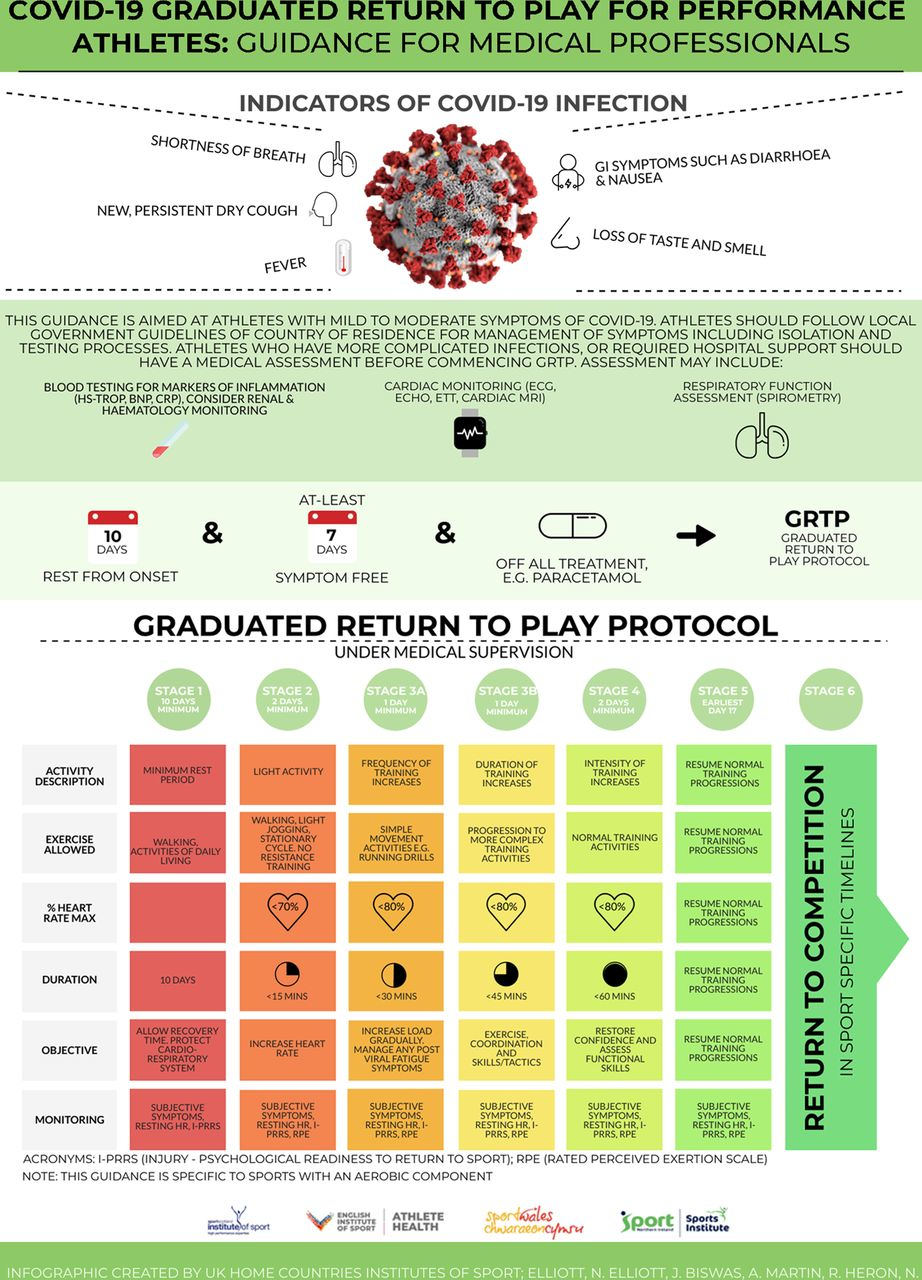Amidst the coronavirus pandemic, how can we protect our athletes hearts?
In the latest episode of the AMSSM Sports Medcast (@TheAMSSM) produced in collaboration with the BJSM, host Dr. Devin McFadden (@ArmySportsDoc) is joined by internationally renowned Sports Cardiologists, Dr. Jonathon Drezner (@DreznerJon) and Dr. Michael Ackerman (@MJAckermanMDPhD).
This podcast explores the pressing cardiac concerns for return to college sport during this coronavirus pandemic: What is COVID myocarditis? How strong is the association between COVID-19 and arrhythmias? What metrics need to be satisfied in order to safely return to play, and will that occur this year? Listen here to find out!
What is COVID myocarditis?
Myocarditis is the inflammation of heart muscle which can cause myocardial injury. There are a number of viruses which are known to cause myocarditis and the coronavirus is known to have tropism to heart muscle. Dr. Drezner explains that in college athletes, myocarditis represents 9% of sudden cardiac death in the pre-COVID era. For further detail on the cardiac manifestations of COVID-19, check out this BJSM editorial.
How should we decide whether or not to initiate return to sport?
Dr. Ackerman provides his expert insight into the high-level discussions that take place when making these difficult decisions. Key points to consider include:
How should we be screening our college athletes if they’ve tested positive for having coronavirus?
There are currently a number of different guidelines which are all reasonably similar but have slightly variable approaches. Furthermore, many of these guidelines are constantly evolving as we develop our understanding of the coronavirus.
Dr. Drezner explains that the development of COVID myocarditis often results in ongoing cardiovascular symptoms beyond the initial isolation period, such as ongoing exercise intolerance, dyspnoea with exertion beyond acute infection and prolonged chest pain. After asking about these symptoms following an athlete’s isolation, Dr. Drezner says he would ideally want an ECG (click here to read an article outlining normal ECG findings in athletes), Troponin-level and Echocardiogram. If all of these were normal, a graduated exercise programme could be commenced, regularly re-evaluating the athlete to ensure that they do not have ongoing symptoms. Dr. Drezner says that he would have a very low threshold to get a Cardiac MRI if any of the aforementioned tests demonstrated any abnormalities. This work-up is similar to the Somauroo model (below) which uses a questionnaire, Troponin blood test and ECG to determine whether an athlete is able to return to professional sport post COVID-19.

Concerned about COVID-19 and the athletic heart? Prof Jon Drezner gives insight.
An earlier BJSM podcast where Prof. Drezner dives into some case-studies and some of the emerging evidence in this field.
The resurgence of sport in the wake of COVID-19: cardiac considerations in competitive athletes.
A BJSM blog exploring similar themes to last week’s podcast.
COVID-19 graduated return to play for performance athletes: guidance for medical professionals

We hope you enjoyed this blog – have you taken away any key messages which will influence your practice? Let us know in the comments section below or by tweeting us @BJSM_BMJ.
Blog by Dr Gautam Menon – FY1 Doctor interested in Sport and Exercise Medicine